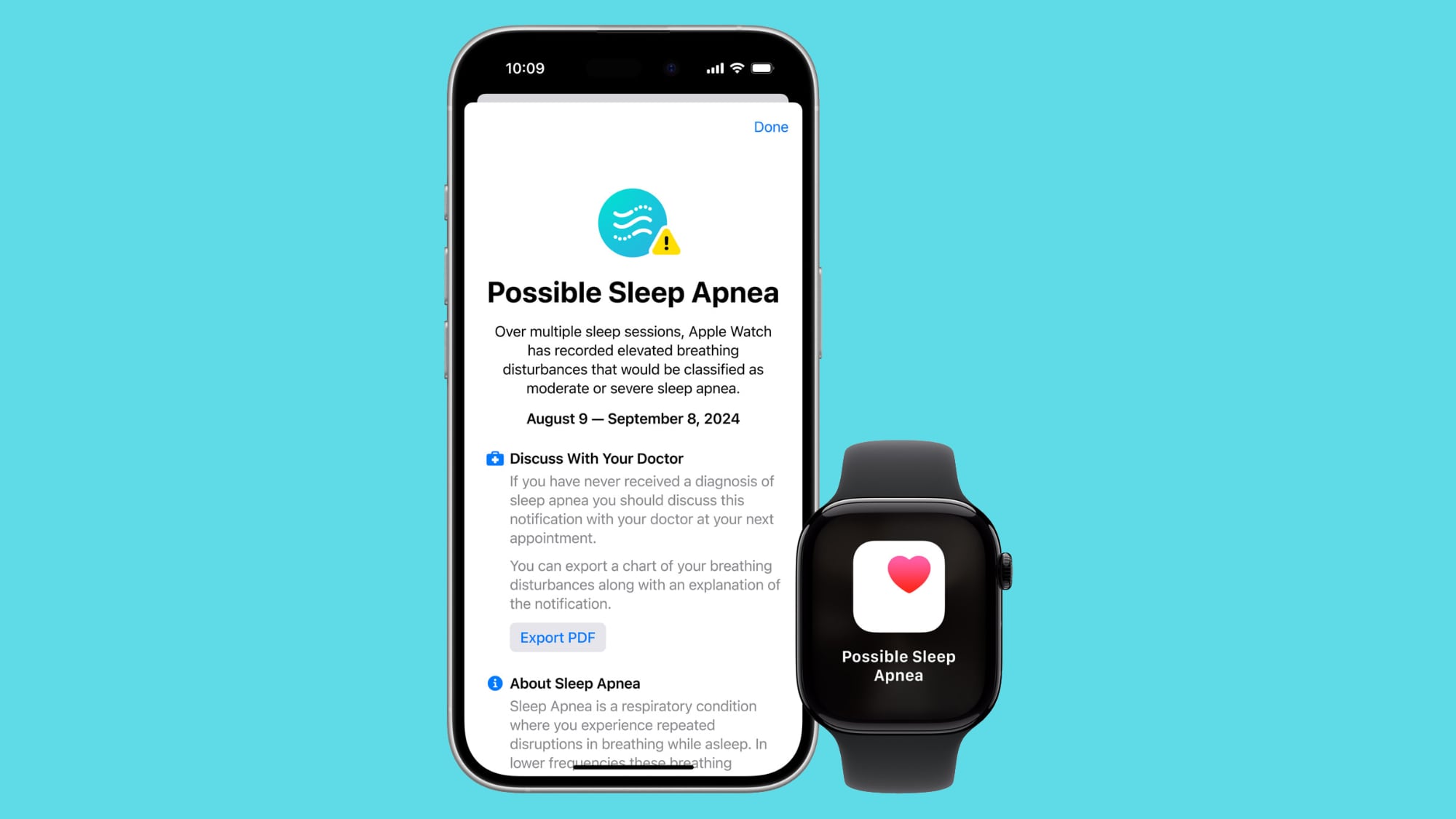
The sleep apnea detection feature that Apple's most recent Apple Watch models offer has expanded to several more countries in Europe, Asia, South America, and more.

Sleep apnea is a disorder where a person's breathing repeatedly stops and starts again during sleep, preventing rest. Sleep apnea detection on Apple Watch uses the device's accelerometer to monitor tiny movements at the wrist that are linked with interruptions in respiratory patterns. Disturbances that occur multiple times over several nights can indicate sleep apnea.
Sleep apnea detection and notifications have expanded to the following areas:
- Argentina
- Australia
- Christmas Island
- Cocos (Keeling) Islands
- Ecuador
- Heard and McDonald Islands
- Honduras
- Indonesia
- Moldova
- Norfolk Island
- Serbia
- Taiwan
- Thailand
- Ukraine
- Vietnam
In addition to bringing sleep apnea detection to more countries, Apple is also expanding AFib History, ECGs, and Irregular Heart Rhythm Notifications to a few more areas.
ECG readings and Irregular Rhythm Notifications have launched in Argentina, Costa Rica, and Serbia, while AFib history is now available in Argentina and Serbia.
AFib history is designed for people who have a diagnosis of atrial fibrillation from a physician. Irregular Heart Rhythm notifications are meant to detect high heart rates, low heart rates, or irregular heart rhythms, all of which can be indicative of a problem. The Apple Watch ECG feature can detect atrial fibrillation, low heart rates, and high heart rates.
ECG, Irregular Heart Rhythm Notifications, and AFib History are features that can be used by Apple Watch owners in over 150 countries worldwide. Apple maintains a dedicated list of Apple Watch feature availability on its website.
Article Link: Apple Watch Sleep Apnea and Heart Health Features Now Available in More Countries

